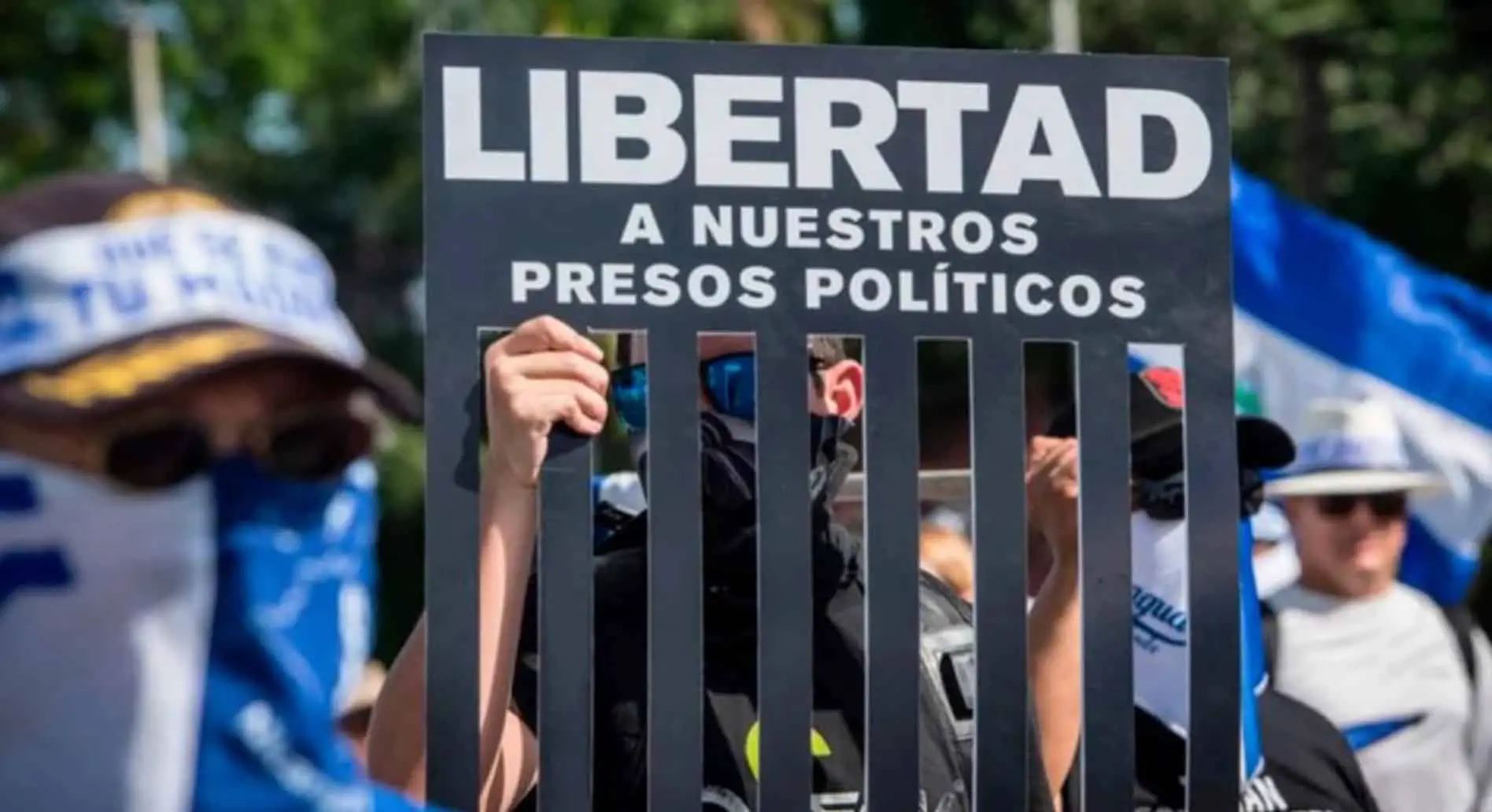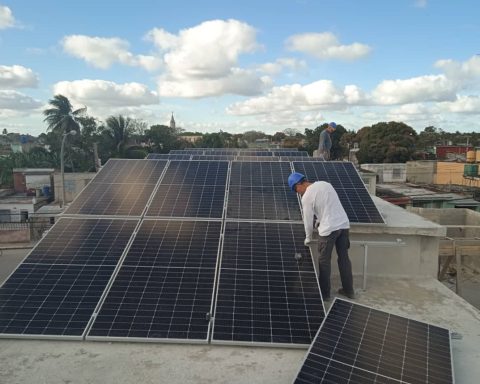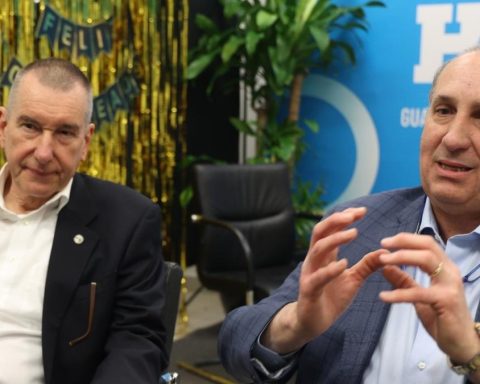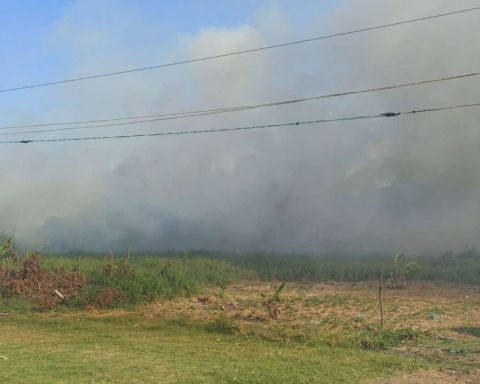International organizations and Nicaraguan personalities in exile reacted with shock to the sudden release and exile of 222 political prisoners who were shipped to the United States first thing this Thursday, February 9, 2022.
The Race and Equality Institute expressed through its Twitter account that it celebrates the release “with emotion and hope” of the 222 political prisoners in Nicaragua and assured that “we remain firm in our commitment to continue fighting for the release of the rest of the people who are unfairly imprisoned.”
Nicaraguan writer Sergio Ramírez also expressed his joy at the release of political prisoners who were “unfairly convicted or prosecuted, prisons they should never have been in.” They are going into exile, but they are going towards freedom,” said Ramírez, who is also in exile.
The German ambassador in Nicaragua, Christoph Bundscherer, thanked the Ortega government for the release of “German Nicaraguan citizen Juan Lorenzo Holmann Chamorro and other prisoners” and assured that “this decision is a decisive contribution to the improvement of our bilateral relations and coexistence peaceful in Nicaragua.
While MEP Soraya Rodríguez assured that she is prudently following the release and exile of political prisoners and added that they are “horrified by a dictatorship that invents laws to exile them and declare them stateless.”
“From the European Parliament and the EU we have also stated that the safe return of the exiles is one of the preconditions for any dialogue or recognition,” he said.
Amnesty International: “Human rights crisis is not over”
The director for the Americas of Amnesty International, Erika Guevara Rosas, said that “we are outraged and saddened that his detention has culminated in such a disturbing way.”
“The international community should have no illusions. The devastating human rights crisis in Nicaragua that began with a severe repression of the protests in April 2018 has not ended (…) The international community must redouble its efforts and press for a Nicaragua in which justice and human rights are guaranteed for all people,” Amnesty said in a statement.
The agency also expressed concern about the expansion of Title 42 and other restrictive migration policies for Nicaraguan migrants. “We call on the US authorities to guarantee the right to asylum for all people expelled from Nicaragua, and for other people who require protection, regardless of the existence of other routes,” they requested.
The former ambassador of Argentina to the OAS, Paula María Bertol, wrote on her Twitter account that “this is proof that these people were unjustly imprisoned violating their human rights and I hope they can return home with their families soon.” .
For his part, the journalist and brother of two political prisoners, Carlos Fernando Chamorro, pointed out that “today a long day of torture and cruelty against the best sons of Nicaragua has ended. The release of 222 prisoners of conscience in Nicaragua, including my brothers Pedro Joaquín and Cristiana Chamorro, is the first step towards freedom for all of Nicaragua. All prisoners of conscience are innocent.”
He is also director of CONFIDENTIALwho is in exile, added that “spurious trials must be annulled so that they fully recover all their rights.”
Costa Rica closely follows the release of prisoners
The director for the Americas of Human Right Watch, Tamara Tarasiuk, assured that “the way in which they were released is one more example of the arbitrariness of justice, handled at the whim of Ortega” and added that “for there to be a democratic transition it is essential to continue monitoring the restrictions on civic space and the abuses in Nicaragua.”
The Costa Rican Foreign Ministry expressed that they are following “recent events very carefully” regarding “the release from prison of a significant number of these political prisoners is received with caution, but also with hope of an improvement in the political panorama in that sister country. ”.
The auxiliary bishop, Monsignor Silvio Baéz, assured that he feels deeply happy about the release of political prisoners. “They should never have been arrested. By banishing them, the Nicaraguan dictatorship commits another crime, showing that they are the ones who do not deserve to be Nicaraguans,” he wrote.
Nicaraguan researcher Elvira Cuadra opined that the Ortega-Murillo dictatorship “made that decision because they are a weak regime and need to resolve the sociopolitical crisis that has existed for 5 years. It is obvious that there is a negotiation, or they are looking for it”.
He also added that “at this time, the priority is to attend to political prisoners and their families, but we must not forget pending issues: cessation of repression, restoration of freedoms and rights, justice and change for democratic elections.”
The writer Gioconda Belli He said that “it is a day of mixed emotions” for the release of political prisoners. “The freedom offered forces them to leave their country. They take away their political rights in perpetuity, ”he explained.
“The Ortega Murillo regime cannot be magnanimous, of course. He offends and mistreats with the weapons that he has left, but I believe that as human beings, the prisoners will be with their families and recovering from the psychological and physical injuries of these months, ”he wrote on his Twitter account.
Banishment condemned
The 222 political prisoners who were released and exiled to the United States also lost their civil rights after being considered “traitors to the homeland.” Faced with this decision by the Ortega Murillo dictatorship, the Open Ballot Box initiative released a statement condemning the use of “institutionality to try to legalize an irregular act, contrary to the law, that violates individual and political liberties.”
“The processes used both to change the sentences of political prisoners and to reform the Constitution are totally irregular (…) We totally reject the exile and withdrawal of nationality applied to political prisoners as unconstitutional, null, illegal, arbitrary and criminal,” they added.
The Nicaraguan Center for Human Rights (Cenidh) also condemned the deportation of prisoners of conscience and accused the Ortega regime of using the judiciary as the main instrument of repression. “Deportation is completely inapplicable in this case, because this is a legal figure of immigration that applies specifically to foreigners,” they said in a statement.
Despite this situation, they were happy because the prisoners of conscience are now free, “the priority objective of those of us who, step by step, follow the fight for the lives of political prisoners, was precisely to save them, to save them from the clutches of the Death, we’ve made it. We hope that the place where they have been exiled will immediately provide them with the necessary medical attention,” they said.
The former executive secretary of the Inter-American Commission on Human Rights (IACHR), Paulo Abrão, considered that “exile is a new arbitrariness, but a new stage is opening in the fight for a democratic transition in Nicaragua.”
The Minister of Foreign Affairs of Chile and former IACHR rapporteur for Nicaragua, Antonia Urrejola, celebrated the release of the political prisoners and assured that “it is undoubtedly progress, especially for the victims and their families. Chile reaffirms its willingness to contribute with initiatives for democratization and respect for human rights”.
The Nicaraguan Human Rights Collective Nunca + classified as a “flagrant violation the resolution disguised as legality of the Court of Appeals of Managua, to release them, prescribed their exile. Despite the fact that they indicated their deportation, the legal figure does not fit for Nicaraguans.
They also highlighted that 38 people are still imprisoned by the Daniel Ortega regime. “Among them Martha Candelaria Rivas Hernández, the only political prisoner, and the Bishop of Matagalpa, Monsignor Rolando Álvarez, who deserve their immediate release.”

















